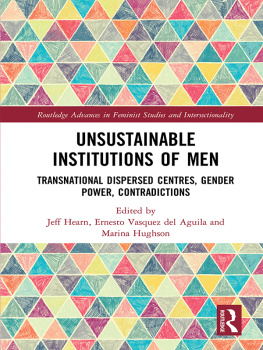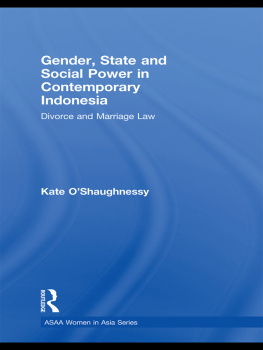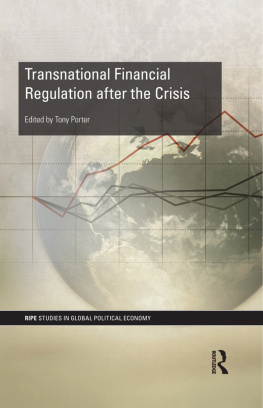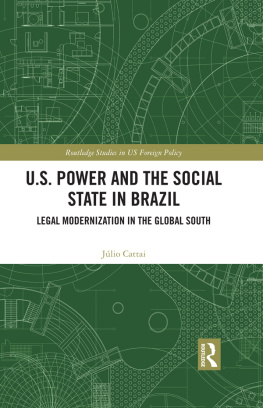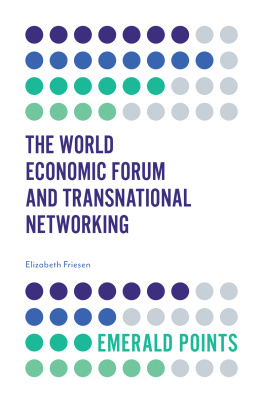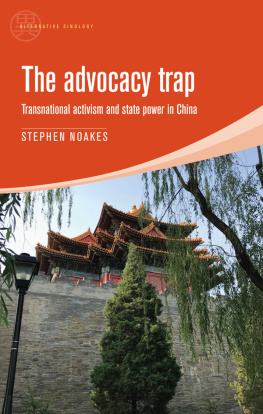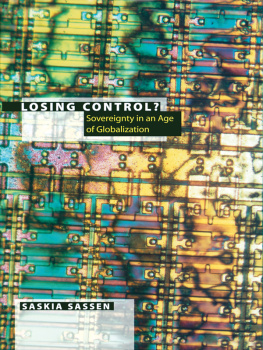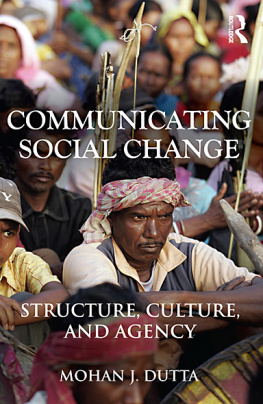THE POWER OF LAW IN A TRANSNATIONAL WORLD
THE POWER OF LAW IN A TRANSNATIONAL WORLD
Anthropological Enquiries
Edited by
Franz von Benda-Beckmann, Keebet von Benda-Beckmann and Anne Griffiths
Published in 2009 by
Berghahn Books
www.berghahnbooks.com
2009, 2012 Franz von Benda-Beckmann, Keebet von Benda-Beckmann, Anne Griffiths
First ebook edition published in 2011
First paperback edition published in 2012
All rights reserved. Except for the quotation of short passages for the purposes of criticism and review, no part of this book may be reproduced in any form or by any means, electronic or mechanical, including photocopying, recording, or any information storage and retrieval system now known or to be invented, without written permission of the publisher.
Library of Congress Cataloging-in-Publication Data
/ Edited by Franz von Benda-Beckmann, Keebet von Benda-Beckmann and Anne Griffiths.
p. cm.
Includes bibliographical references and index.
ISBN 978-1-84545-423-4 (hbk.) -- ISBN 978-0-85745-615-1 (pbk.) -- ISBN 978-1-84545-916-1 (ebk.)
1. Legal polycentricity. 2. Law and globalization. 3. Law and anthropology.
I. Benda-Beckmann, Franz von. II. Benda-Beckmann, Keebet von. III. Griffiths, Anne M. O.
K236.P683 2009
340.115dc22
2008053764
British Library Cataloguing in Publication Data
A catalogue record for this book is available from the British Library
ISBN 978-1-84545-423-4 hardback
ISBN 978-0-85745-615-1 paperback
ISBN 978-1-84545-916-1 ebook
Contents
Franz von Benda-Beckmann, Keebet von Benda-Beckmann, Anne Griffiths
Carol J. Greenhouse
Laura Nader
Jane K. Cowan
Upendra Baxi
Franz von Benda-Beckmann
Melanie G. Wiber and John F. Kearney
Markus Weilenmann
Anne Griffiths and Randy F.Kandel
Richard W.Whitecross
Keebet von Benda-Beckmann
Fernanda Pirie
Acknowledgements
This volume is the second publication that has resulted from a series of conferences organized by the School of Law, Edinburgh University, and the Max Planck Institute for Social Anthropology in Halle/Saale, Germany, on the development of the anthropology of law. The first volume, Mobile People, Mobile Law: Expanding Legal Relations in a Contracting World, appeared in 2005 with Ashgate. We thank the Max Planck Institute, the Economic and Social Research Council (U.K.), the British Academy (U.K.) and the Wenner-Gren Foundation for Anthropological Research (U.S.) for their financial support. We are deeply indebted to Astrid Finke and Jacqueline Cottrell, who worked on the manuscripts written by non-native speakers, to Margaret Beechey and Myra Reid for their work in organizing the conference, and to Gesine Koch, Sung-Joon Park, Cornelia Richter, Philipp Humpert and Titus Rebhann for preparing the manuscript.
Introduction
The Power of Law
Franz von Benda-Beckmann
Keebet von Benda-Beckmann
Anne Griffiths
Law is a source for constituting and legitimating power. It defines and validates positions and relations of power of persons or organizations over other persons, organizations and resources. It lays down in general terms which exercises of power are permissible or prohibited. It can be actualized in social interaction when the exercise of power is rationalized and justified with reference to law. Of course, other means for constituting and legitimating power and exercising social control coexist and compete with legal ones. These include moral and ethical standards as well as naked, unabashed power based on the command and exercise of physical force. Yet even autocrats exercising power on the basis of might is right often feel the need to legitimate their position through reference to a higher and more noble source. The legal certification of power (F. von Benda-Beckmann 2005: 3) is therefore a resource much sought after in local, national and transnational arenas.
Earlier discussions on the relationship between law and power and the function of law for preventive and reactive social control situated law primarily in a national context. In an earlier publication, we have explored some of these transnational dimensions of mobile law and mobile people (F. von Benda-Beckmann, K. von Benda-Beckmann and A. Griffiths 2005). The present volume explores some of the connections between law and power, taking account of these new configurations.
The volume is organized around three sets of issues. The essays in the first section, on the Power of Law as Discourse: Claims to Legitimacy and Higher Morality, focus on power differentials entailed in the strategic use of legal discourses. Law plays an important part in creating, producing and enforcing meanings of concepts such as justice, authority and rights; and in instantiating notions of legality that may be invoked by different social actors in their construction of hegemonic and counter-hegemonic discourses. Such discourses not only operate on a rhetorical or ideological level but may also serve to underpin the actual use of force or violence to achieve their ends. The second section At the Intersection of Legalities focuses on how different actors make and maintain law in a whole variety of settings that represent very diverse constellations of power as they navigate their way through the plural legal orders they encounter. Finally, the chapters in the third section Religion as a Resource in Legal Pluralism explore the impact that religion may have on law, especially under conditions of legal pluralism where it may be employed to extend state control, or alternatively, to create a space for autonomy from such control. Rather than pitting religion against the state, the authors highlight the need for a more concrete understanding of the specific contexts in which religion is invoked, displaying the complex relationship that exists between it and other intrastate regulatory frameworks, such as customary law, that make up the sources of legal authority on which people and institutions may draw.
Exploring these interconnections demands an understanding of the analytical complexities that inhere in the relationship between law and power. We will, therefore, briefly address this relationship and the challenges that it poses for a study of the power of law before we turn to a more detailed discussion of the issues that the contributors raise.
Understanding Law and Power
In our understanding, law is a cover term that encompasses a wide range of legal phenomena. Legal orders or single rules may be rooted in different sources of legitimacy, such as age-old tradition, religion, the will of the people, or agreements between states. The coexistence of such legal forms in the same social field (however defined) is generally called legal pluralism. The kinds of law discussed in this volume include the formal laws of states and international laws and conventions (Greenhouse, Nader, Baxi, Griffiths and Kandel), human rights (F. von Benda-Beckmann), regulatory regimes that include bureaucratic forms of governance such as executive orders (Greenhouse) or the project law of development organizations (Weilenmann), as well as civil servants and NGOs supervision of diplomatically determined international agreements (Cowan) and fisheries quotas in Canada (Wiber and Kearney). They also include traditional or neotraditional ethnic and religious legal orders (Whitecross, K. von Benda-Beckmann, Pirie).



